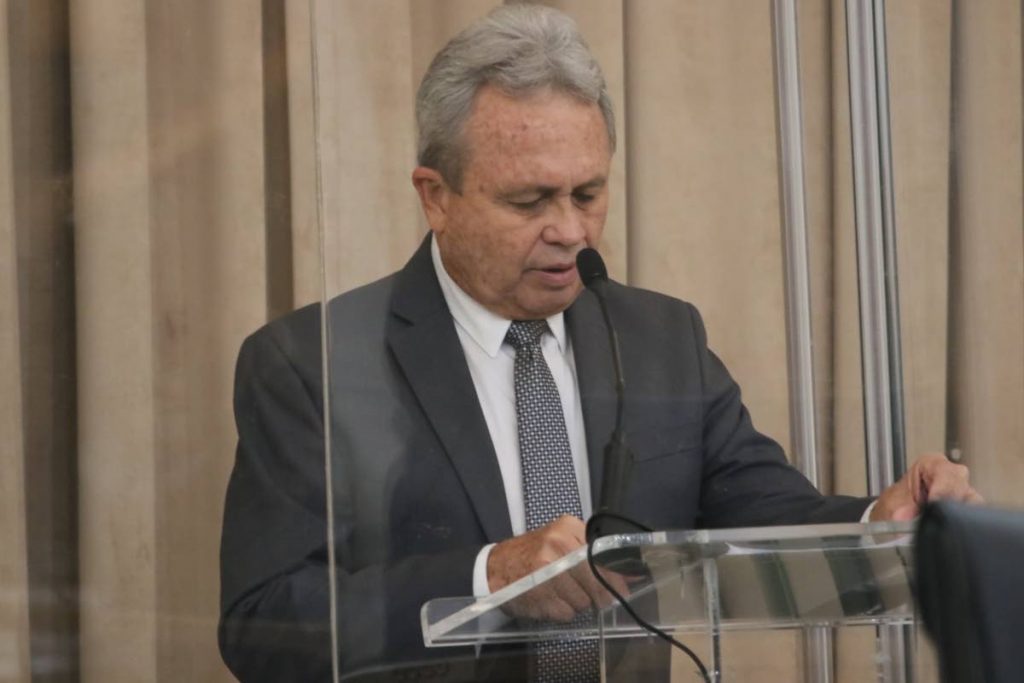Economist questions Finance Minister's IMF rationale

ECONOMIST Dr Vaalmiki Arjoon on Friday questioned the reasons advanced by Finance Minister Colm Imbert in the 2021 Mid-Year Review that Trinidad and Tobago would not stop borrowing to fund salaries and the provision of basic amenities like water and electricity.
Arjoon also questioned why Imbert was insisting that TT approaching the International Monetary Fund (IMF) for funding is not on the cards.
In presenting the Mid-Year Review in the House of Representatives on Wednesday, Imbert said countries only go to the IMF when they run out of foreign exchange and cannot service their foreign debt.
"Since our foreign reserves are still in the vicinity of approximately US$7 billion and our Heritage and Stabilisation Fund (HSF) is still in the vicinity of US$5.7 billion, we have more than sufficient foreign exchange at this point in time and there is no reason to go to the IMF for financial assistance."
Imbert said, "We are certainly not going to make structural adjustments such as retrenchment, removal of subsidies and devaluation at this time." He also said if TT stopped borrowing, it could not finance the fiscal debt, pay salaries, finance education, health care and provide water and electricity to citizens at the current rates. Speaking in the Senate on Friday, Imbert said, "There is no gainsaying that because of the reduction in revenue as a result of covid19, that the fiscal budget deficit for fiscal 2021 would be significantly more than was originally anticipated. That is simple mathematics." He continued, "We are looking at a shortfall of approximately $5 billion in revenue, mostly from the energy sector.
Imbert said Government has largely succeeded in maintaining expenditure close to $50 billion since 2016. "However, in preparing the 2021 estimates of expenditure, an effort was made to make a further reduction approximately down to $48..$48.5 billion." But he said, "Unfortunately because of the various demands of the various ministries for goods and services, salaries and wages, we have to take it back up to the $51 billion level." Sticking to the point that Government will not be approaching the IMF for funding, Imbert said armchair economists conveniently omit to tell the population that countries must accept certain conditions and make policy adjustments to access funding from the IMF.
Imbert said, "People must understand that it is not right to just glibly say that we should go to the IMF. We in this government have sought to do our own restructuring without the imposition of IMF conditionalities."
Arjoon said the projected $5 billion revenue shortfall which Imbert projected, together with the additional $2.9 billion increase in expenditure which Government was seeking through the bill, could make the deficit comparable to last year's deficit of over $16 billion.
"Naturally, with a $48 billion deficit over 2016 to 2020, we hadn’t saved and therefore had no choice but to borrow substantially and withdraw from the HSF (Heritage and Stabilisation Fund). Arjoon said, "It is therefore highly likely that funds from these sources will be deposited to the consolidated fund to finance the appropriation." He also said it was counter-intuitive that Imbert is discounting the IMF as a source of funding "given that we have encouraging CBTT (Central Bank) reserves and the HSF."
Arjoon argued, "We do not need to be under a full-fledged programme to access these funds, as they are set up for emergency purposes." He added these loans have very low interest rates. According to Arjoon, "The fiscal policies in the last few years essentially backfired. "He said if Government had not increased the cost of doing business, especially through higher taxes in the interest of “balancing the books” rather than promoting economic welfare, "the SME (small medium enterprise) sector would have saved more to plough back into their businesses and be in a better position to cope with the current financial distress."
He suggested that Government be more aggressive with aid to the SME community, "or else they run the risk of the informal sector becoming larger in the future." Arjoon said some sole traders who may have shut down their business, but may re-open when the current public health and state of emergency (SoE) restrictions are over. He said some of these people "may be less inclined to get registered as they received no help, while budding entrepreneurs may opt to not get their businesses registered in future as they believe that they will not get value for money when taxes are paid, together with a largely bureaucratic process to get registered in the first place."
Arjoon also said with excess liquidity of approximately $8 billion sitting in the banking system doing nothing, "the State can use some of these funds to increase their fiscal relief package, through setting up and capitalising a new state-run financial institution, that will provide loans to SMEs." He said such an institution will not be bound by the same rules as commercial banks, "so more businesses (both formal and informal can access the loan." Other forms of support which should be considered, Arjoon continued "are a reduction of utility rates allowing them to pay residential rates instead of commercial rates, rent support, a wage subsidy programme aimed at sustaining business employment."
He said, "These can all be funded using some of the excess liquidity not exceeding $2 billion." Arjoon was concerned that "without adequate and timely support for businesses, much of the remaining private sector and budding entrepreneurs will be unwilling to invest in the future. He said, "Some may prefer to operate informally, depriving the state of tax revenues."

Comments
"Economist questions Finance Minister’s IMF rationale"